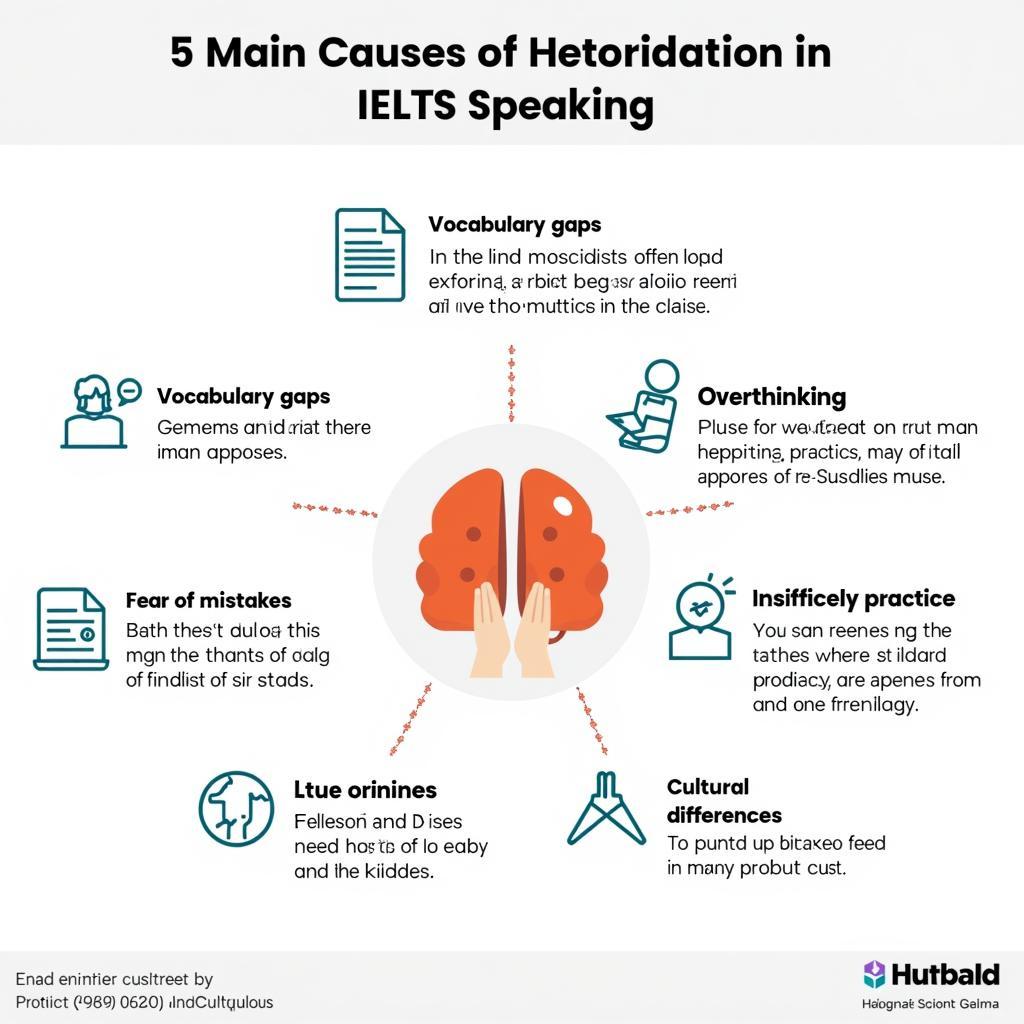Are you struggling with frequent pauses and hesitations during your IELTS Speaking test? You’re not alone. Many candidates find themselves stumbling over words or using excessive filler words, which can significantly impact their band score. Let’s explore proven strategies to overcome this common challenge and speak more fluently.
Understanding the Root Causes of Hesitation
Before diving into solutions, it’s crucial to understand why hesitation occurs. Common reasons include:
- Lack of vocabulary
- Overthinking responses
- Fear of making mistakes
- Limited practice
- Cultural communication differences
How to avoid hesitation in IELTS Speaking? provides detailed insights into these underlying causes and their solutions.

Essential Strategies to Reduce Hesitation
1. Build a Strong Vocabulary Foundation
- Learn topic-specific vocabulary clusters
- Practice using synonyms and paraphrasing
- Master common collocations
- Memorize useful linking phrases
2. Develop Natural Speaking Patterns
Learning to speak naturally is crucial for avoiding filler words in speaking. Focus on:
- Using appropriate transition words
- Implementing stress and intonation
- Developing rhythm in speech
- Maintaining a steady speaking pace
3. Master the Art of Buy-Time Techniques
When faced with challenging questions, use these professional strategies for handling complex answers in part 3:
- Paraphrase the question
- Use expressions like “That’s an interesting question”
- Briefly organize thoughts while maintaining flow
- Bridge to related examples
Advanced Tips for Fluent Speaking
Practice Smart Speaking Exercises
Implement these daily exercises:
- Shadow speaking with native content
- Record and analyze your responses
- Practice with tongue twisters
- Engage in mock interviews
For more detailed practice techniques, explore how to avoid hesitations in speaking.
Utilize Professional Speaking Devices
Understanding IELTS Speaking fillers and hesitation devices? is crucial. Learn to:
- Use appropriate fillers strategically
- Employ natural hesitation devices
- Maintain coherence during pauses
- Transform weaknesses into strengths
Quick Tips from IELTS Expert Sarah Thompson
“The key to reducing hesitation isn’t eliminating pauses completely – it’s about making them work for you. Strategic pausing can actually enhance your speaking performance.”
Creating Your Personal Progress Plan
- Daily speaking practice (minimum 30 minutes)
- Regular recording and self-evaluation
- Topic-based vocabulary building
- Weekly mock tests with feedback
- Consistent exposure to native content
Conclusion
Eliminating hesitation in IELTS Speaking requires consistent practice and the right strategies. Focus on building your vocabulary, developing natural speaking patterns, and mastering buy-time techniques. Remember, the goal isn’t to speak without any pauses but to communicate effectively and confidently.
Frequently Asked Questions
-
How long should I practice speaking daily to reduce hesitation?
- Aim for at least 30 minutes of focused practice daily.
-
Are all types of hesitation bad for IELTS Speaking?
- No, natural pauses can actually enhance your speaking performance.
-
What’s the best way to practice if I don’t have a speaking partner?
- Use recording techniques, shadow speaking, and online resources.
-
Can hesitation affect my IELTS Speaking band score?
- Yes, excessive hesitation can impact your fluency and coherence score.
-
How can I tell if I’m improving?
- Record your practice sessions and track reduction in hesitation frequency.